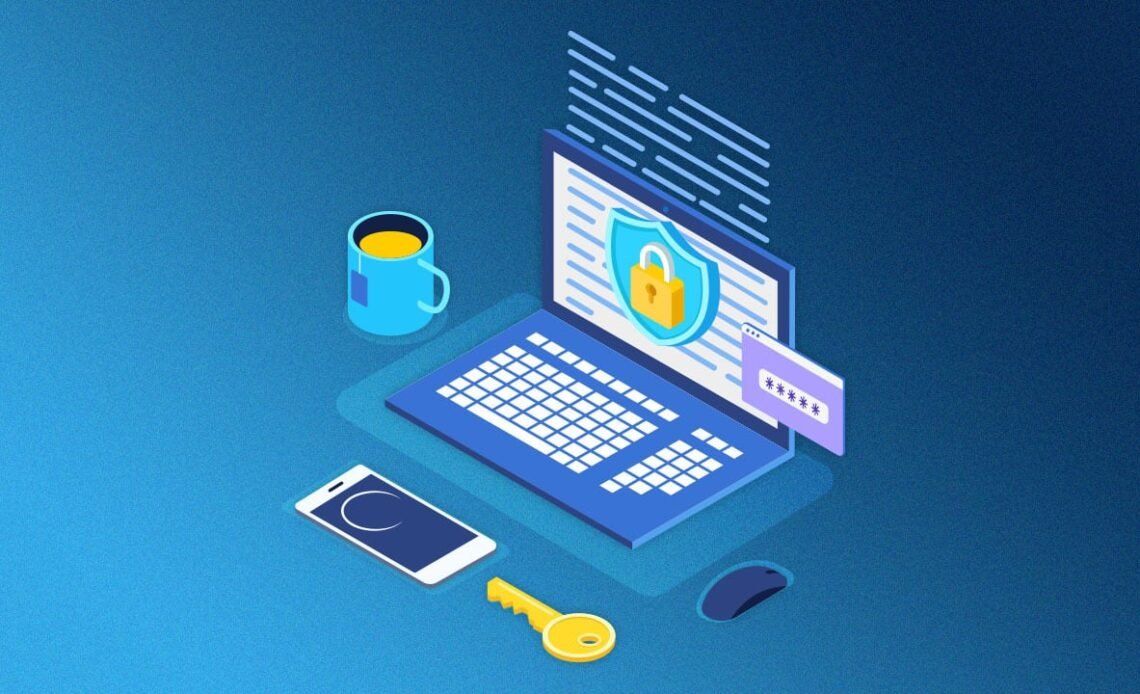It’s a tough time to be doing business online. Though the internet offers incredible opportunities for branding and sales, cybersecurity presents a unique challenge. The issues are even more pronounced if you’re a small business owner. Thankfully, a few simple strategies can help secure your company’s future. Here are six ways to keep your data safe.
- Gain Technical Knowledge
Knowledge is the most effective weapon in your cybersecurity arsenal. Criminals are banking on their victims’ ignorance of how attacks happen and the methods for countering them. Information about common attacks like SQL injection and rootkits is a click away. Learning about cybersecurity threats is only one facet of preparedness. It’s equally vital to know how your infrastructure works. For example, a low code course could help hone your knowledge of your company’s apps. Keeping your mind sharp is how you stay one step ahead of the criminals.
- Plan Around Mobile Devices
The modern workforce is constantly on the move. Workers perform their tasks on a wide array of devices. Using these tools results in unprecedented flexibility but also multiplies potential weak points. The concept of “endpoint security” centers on standardizing protection across all devices. Ensure all employees have security software on their phones and never use unsecured Wi-Fi for business purposes. Nobody can be a weak link in the security chain.
- Train Employees in Proper Security Protocol
Recent studies unearthed an uncomfortable truth about cyber threats. Tessian’s The Psychology of Human Error report discovered that 43% of employees admitted to making mistakes on the job that compromised digital security. Many of these errors were not the result of laziness but of ignorance. Lax training and constant distraction constituted a perfect storm of weak security. Teach employees to watch for common scams like “phishing.” In these attacks, victims are tricked into assuming the legitimacy of a website, email, or phone call. Train everyone to insist on proper credentials from everyone they have contact with.
- Backup All Vital Data in Multiple Locations
The data itself is the main prize for hackers. For this reason, the use of encryption at all stages of data transfer and storage is crucial. Either encrypt your hard drives or store data remotely on encrypted flash drives. Employ a virtual private network (VPN) for all high-priority transactions to keep your digital identity masked. Ask that clients do the same for their protection. Having old-fashioned hard copies in a locked safe creates another hack-proof backup. Extra layers of protection between your company and criminals are worth having.
- Prioritize Network Security
You’re doing business in a radically networked age. Because of this, it’s vital to center your security programs around network-specific needs. Rigorous authentication standards are the best practice here. This security architecture is known as “zero-trust” for a reason. You must assume the worst of any new user on your network and act to limit their ability to cause problems. Always insist upon multiple levels of verification, and curtail their access to the bare minimum. It may feel like paranoia, but this level of scrutiny can prevent issues before they arise.
- Build Stronger Passwords
An essential part of that robust authentication protocol is creating strong passwords. If you’re like most users, you might never have been told what constitutes a “strong password.” Science provides the answer: According to research company Statista, a strong password is at least 12 characters long and consists of randomized numbers, letters, and symbols.
Varying the case of letters is equally important. The same research showed that adding one uppercase letter to an eight-letter password increases the time to crack it by up to 1000%. Above all other considerations, never leave a written password in an unsecured location. They’re only as effective as they are confidential!
The challenges associated with cybersecurity don’t have to be a dealbreaker for future success. Leveraging sound knowledge is the key to creating a security plan that will stand the test of time.







